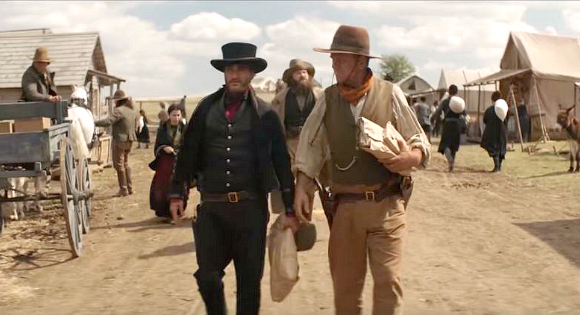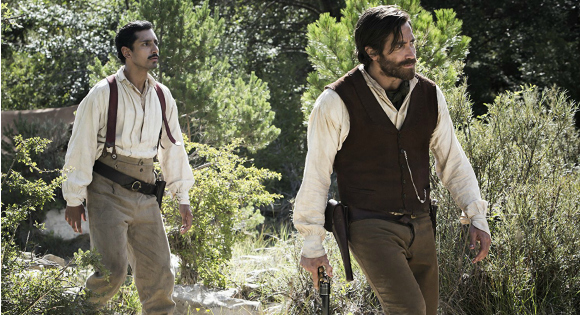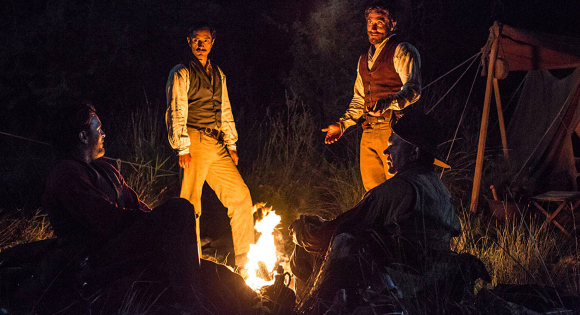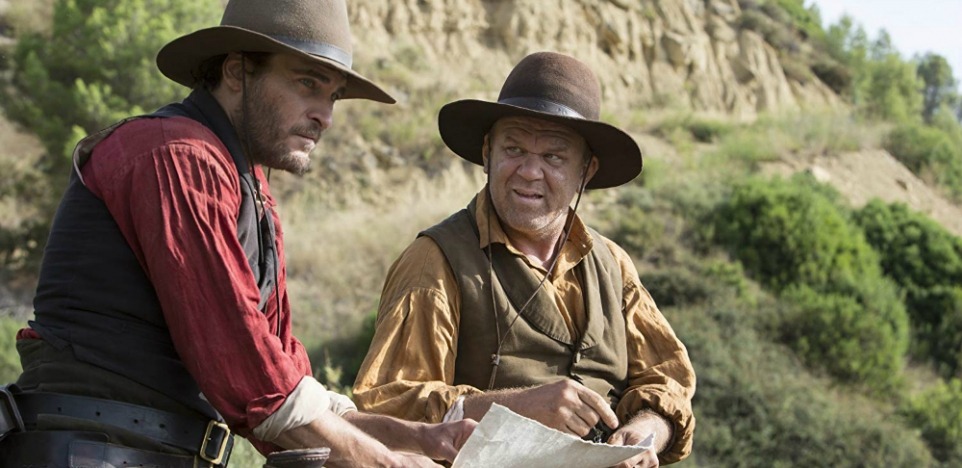The joke of the Sisters Brothers’ last name isn’t played for too many laughs throughout Jacques Audiard’s strangely moving adaptation of Patrick deWitt’s celebrated novel. But this obvious play on words haunts the film’s landscape like a specter, as if our antiheroes, two middle-aged men with the stunted immaturity of teenage boys, feel they must make up for their femininized surname by acting as masculinely violent as possible.

Beginning with a disturbingly cryptic shootout and ending with a melancholic coda that verges on wistful, The Sisters Brothers is an odd, elegiac meditation on manliness, set in the Wild West, but with much more on its mind than guns and gold. It moves as slowly as molasses, but its sweetness, peppered with bouts of graphic gunfighting, keeps the evolution of our titular brothers Eli (John C. Reilly) and Charlie (Joaquin Phoenix) riveting and affecting, inviting the viewer into a fabled world where even scruffy hired hitmen get reflective and poetic.
Eli and Charlie stalk the dusty West under the thumb of the mysterious Commodore, a shadowy, patriarchal figure glimpsed only briefly. Their latest assignment is to off gentle, brilliant scientist Hermann Kermit Warm (Riz Ahmed), who has invented a lethal chemical compound that when poured into a river or pond reveals the hidden gold desired by so many prospectors. The brothers’ path to find their prey has been trailblazed by scout John Morris (Jake Gyllenhaal), a dastardly dandy who speaks with a gratingly proper affect and who just might be falling for Warm’s intelligent charms.

As the two duos cross paths and the once certain enemies become uncommon allies, startlingly substantive ruminations lift the characters (and the film itself) from being merely quirky examples of revisionist history to being big-hearted excavations of what makes a man a man, what makes a human being worthy of respect and self-esteem, and what makes a truly meaningful life in a barren wilderness where death could lie just beyond the next tumbleweed.
All four men are fleshed out with distinct personalities, even as they clearly represent classic archetypes (the bad boy with the heart of gold, the off-kilter killer thirsty for blood, the prissy and posh poser, the do-gooder humanitarian), and each actor imbues their lines with genuine empathy; a more distanced, arch approach might have pushed the proceedings over the edge into campy commentary.

Subtle shocks interrupt the slow boil of the film’s plot at just the right moments and each revelation builds upon prior moments, creating a thread of amusing and effective tableaus of self-discovery. From the early exchange when Eli earnestly asks Charlie of their profession, “You’ve never thought about stopping?” (to which his brother incredulously responds, “And do what?!”), to Eli’s gleeful later realization, “Hey, have you noticed how long it’s been since somebody tried to kill us?!,” these gents gallop along a peculiarly progressive path to maturation. The affable performances and Audiard’s intentional and sly subversions of cowboy tropes invite the viewer to root for their success, especially during the film’s harrowing and horrifying climax. And when the horror lifts to give way to a dreamlike epilogue and the brother’s make a final stop on their journey, they seem as surprised as anyone to see how far they’ve come.
